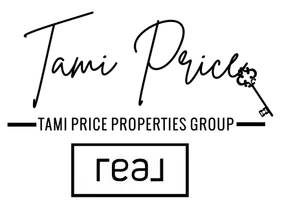
Evaluating & Negotiating Offers on Your San Antonio Home For Sale
Getting the Best Deal Means Understanding Every Term
Receiving an offer on your home is exciting—but not all offers are equal. The highest price doesn't always mean the best deal. Smart evaluation of price, terms, contingencies, and buyer qualifications determines which offer truly maximizes your net proceeds and minimizes risk.
As a Master Certified Negotiation Expert (MCNE) and Seller Representative Specialist (SRS), Tami brings strategic negotiation skills and 18+ years of experience to help you evaluate offers objectively and negotiate terms that protect your interests.
What's in an Offer?
Key Components to Evaluate:
1. Purchase Price: The offered amount—but remember, this is just the starting point. Terms and contingencies matter as much as price.
2. Earnest Money Deposit: Money the buyer deposits to show commitment (typically 1-2% of purchase price in Texas). Higher earnest money signals serious intent.
3. Financing Type:
✅Conventional loan - Standard financing, typically reliable
✅FHA loan - Government-backed, may require property to meet specific standards
✅VA loan - Military buyers, no down payment required, strict appraisal standards
✅Cash - No financing contingency, typically fastest and most certain closing
4. Down Payment Amount: Higher down payment = stronger buyer with more financial commitment and lower financing risk.
5. Option Period: Negotiated timeframe (typically 7-10 days in Texas) when buyer can terminate for any reason. Buyer pays option fee (typically $100-500) for this right. Buyer,s have the right to inspect and request repairs or negotiate based on findings during this timeframe.
6. Financing Contingency: Buyer must obtain loan approval. If financing falls through, buyer can terminate and recover earnest money.
7. Appraisal Contingency: If home appraises below contract price, buyer can renegotiate, terminate, or proceed. Some offers waive this contingency in competitive markets.
8. Closing Date: Proposed timeline from contract to closing. Your timeline needs vs. buyer flexibility matter here.
9. Seller Concessions: Buyer requests for seller to pay closing costs, repairs, warranties, or other expenses.
10. Contingencies on Buyer Selling Their Home: If buyer must sell their current home first, this adds significant uncertainty and timeline risk.

Evaluating Offer Strength
Not All Offers Are Created Equal
Strong Offer Indicators:
✅ Pre-approved buyer (not just pre-qualified)
✅ Higher earnest money deposit
✅ Significant down payment (20%+ for conventional)
✅ Cash or conventional financing
✅ Flexible closing timeline
✅ Minimal seller concessions requested
✅ No home sale contingency
✅ Reasonable option period
✅ Local lender (easier communication and reliability)
Weaker Offer Indicators:
⚠️ Pre-qualified only (not fully approved)
⚠️ Minimal down payment (Unless VA)
⚠️ FHA with property condition concerns
⚠️ Extensive seller concessions requested
⚠️ Contingent on buyer selling their home
⚠️ Extended option period (15+ days)
⚠️ Out-of-state lender with unknown track record
⚠️ Unrealistic closing timeline
HOW IT WORKS

Our Negotiation Approach
Data-Driven Strategy
We don't negotiate based on emotion or ego. Every counteroffer recommendation is based on current market conditions, comparable sales, offer strength analysis, and your specific goals.
Clear Communication
You'll understand exactly what each offer means for your net proceeds, timeline, and closing probability. We explain options clearly so you can make informed decisions.
Strategic Positioning
As a MCNE (Master Certified Negotiation Expert), Tami understands negotiation psychology, timing, leverage points, and how to structure counteroffers that maximize results while maintaining deal integrity.
Your Advocate
Our job is to fight for your best interests—maximum net proceeds, favorable terms, timeline that works for you, and highest probability of successful closing.
Responsive Execution
Real estate negotiations move quickly. We respond promptly to offers, counteroffers, and time-sensitive situations so you never miss opportunities due to slow communication.

What Happens After Acceptance?
Once you accept an offer (or your counter is accepted), the contract is executed and you move into the under-contract phase:
✅Option Period - Buyer conducts inspections and has right to terminate
✅Financing Approval - Buyer's lender completes underwriting
✅Appraisal - Lender orders appraisal to confirm property value
✅Title Work - Title company researches ownership and prepares closing documents
✅Final Walkthrough - Buyer verifies property condition before closing
✅Closing - Documents signed, funds transferred, sale complete

Common Questions Asked During Negotiating Offers On A San Antonio Home For Sale
Should I always accept the highest offer?
Not necessarily. The highest price with weak financing, excessive contingencies, or unfavorable terms may carry more risk than a slightly lower offer from a strong buyer with clean terms.
Can I negotiate after accepting an offer?
Once both parties sign the contract, terms are binding. However, inspection and appraisal can create new negotiation opportunities around repairs or price adjustments.
What if I get an offer but want to wait for more?
You can counter with extended response deadline, giving yourself time to see if other offers come in. However, if market activity is slow, a solid offer in hand may be better than waiting for a hypothetical better one.
How do I know if a buyer is financially qualified?
We review pre-approval letters carefully, contact the lender to verify approval status, and evaluate down payment and earnest money strength.
What if multiple offers are similar?
We look at secondary factors: financing strength, closing timeline flexibility, earnest money amount, buyer motivation, and agent reputation.
REVIEWS

CONTACT TAMI PRICE TODAY!
